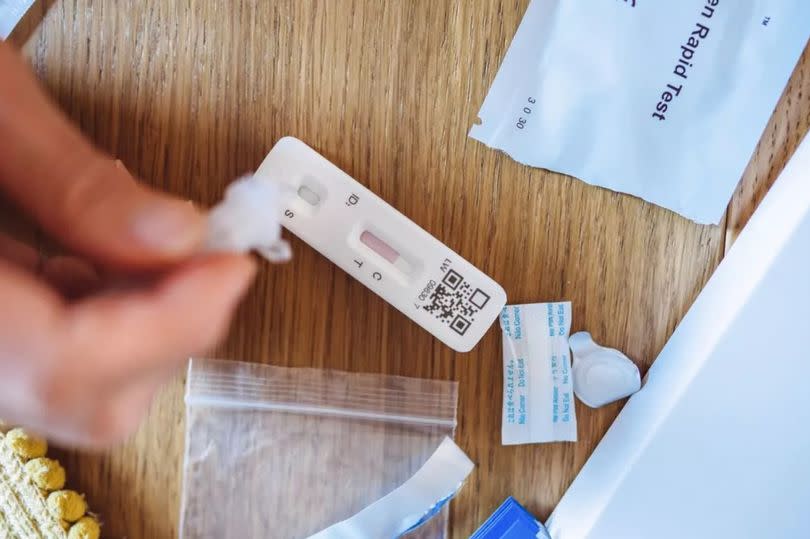Covid warning issued as NHS explains when you should call 999

A Covid warning has been issued amid an uptick in cases in England - with people in the UK warned to "call 999" if they spot warning sign symptoms. Coronavirus is on the rise again, thanks to a summer wave sparked by the new FLiRT variants.
The NHS warn that you should seek urgent attention from your GP or 111 if you're worried about your or a child's Covid-19 symptoms or are not sure what to do, the symptoms are getting worse or are not getting better or you or a child has other signs of illness, such as a rash, loss of appetite, or feeling weak.
You should also get in touch if you or a child have a high temperature that lasts 5 days or more or does not come down with paracetamol, a child under 3 months old and has a temperature of 38C or higher, or you think they have a high temperature or a child 3 to 6 months old and has a temperature of 39C or higher, or you think they have a high temperature.
"It's obviously harder currently to collate definitive data on infections, but there seems to be consensus that we are in a period of rising breakthrough infections and hospitalisations," said Prof Danny Altmann of Imperial College London.
"This is certainly a subject of ongoing concern and need for vigilance, not least in respect of advice on booster uptake for the vulnerable," reports Birmingham Live.
Prof Paul Hunter of the University of East Anglia noted that given that much of the data was collected in healthcare settings, most reported cases tended to be in older or vulnerable people.
"I suspect increases in this age group are due to falling levels of sterilising immunity, especially given that the uptake of the spring booster in people over 75 years old was little more than 60%," he said.
However, Hunter also warned that younger individuals could be at risk. "In people who were infected over winter, sterilising immunity would be falling by now, and in people who had not had an infection then or since, there would be relatively little sterilising immunity left," he explained.

 Yahoo News
Yahoo News 
